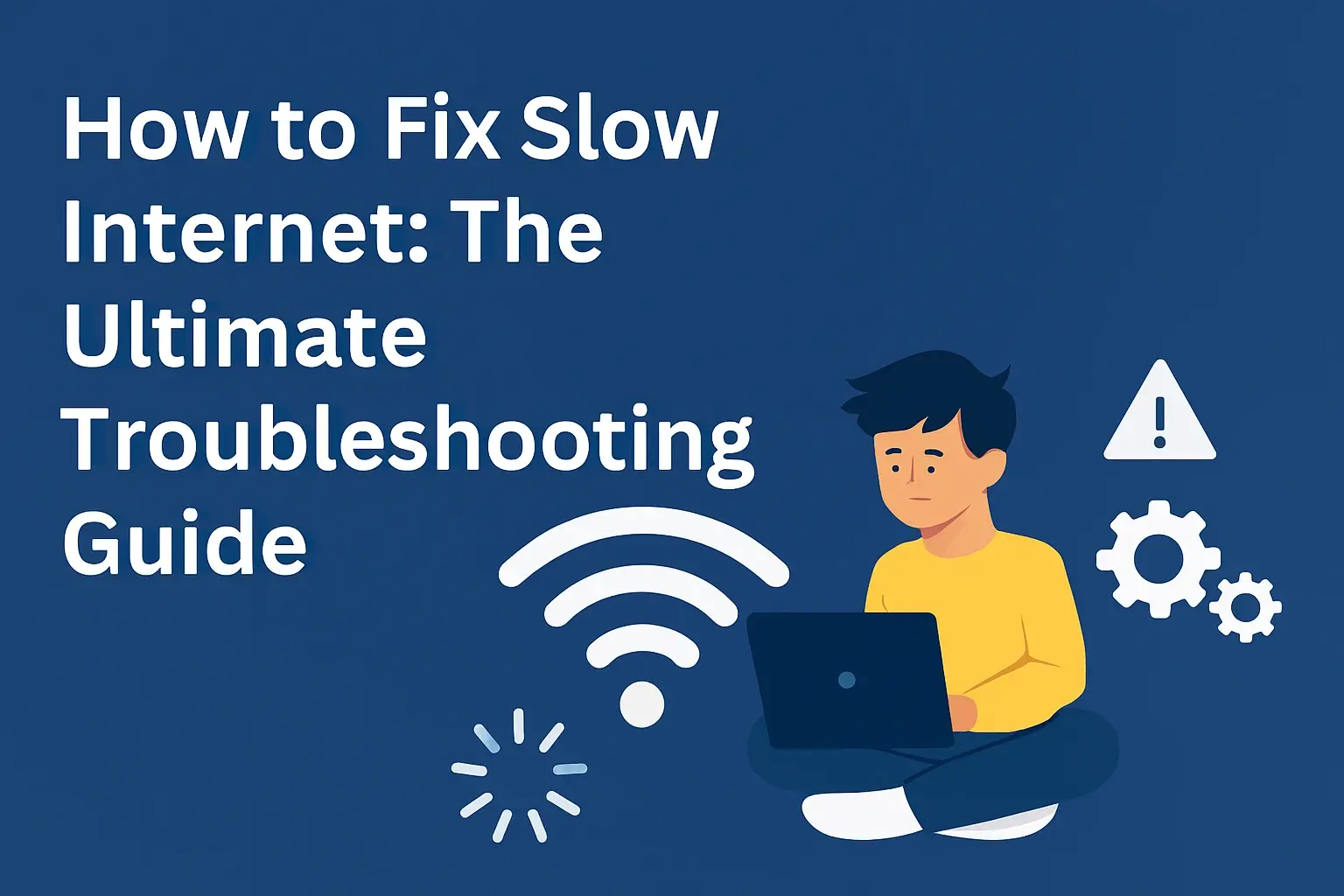Internet for Gaming: A Comprehensive Exploration

The internet has reshaped countless industries, but its impact on gaming is particularly profound. What began as simple, single-player experiences on early computers has evolved into a global phenomenon, connecting millions through multiplayer games, esports, and virtual communities. The internet has not only changed how games are played but also how they are developed, distributed, and experienced. This blog post dives deep into the relationship between the internet and gaming, exploring its historical roots, transformative effects on game development, the rise of esports, social dynamics, technological advancements, challenges, and future trends. With the global gaming market projected to reach $211 billion by 2025, understanding this relationship is key to appreciating the industry’s past, present, and future.
History of Online Gaming
The journey of online gaming began in the 1970s with pioneering efforts like MUD1 (Multi-User Dungeon), a text-based game that allowed multiple players to interact in a shared virtual world, and the PLATO system, which hosted early multiplayer games like Empire and Spasim. These games, developed on university mainframes, laid the groundwork for networked gaming. The 1990s introduced LAN parties, where players connected computers locally to play games like Doom and Quake, and commercial online services like CompuServe offered multiplayer experiences.
The early 2000s marked a turning point with the rise of broadband internet, enabling seamless online play. Massively multiplayer online games (MMOs) like EverQuest and World of Warcraft became cultural phenomena, allowing thousands of players to inhabit persistent virtual worlds. Today, online gaming spans genres from battle royales like Fortnite to mobile titles like PUBG Mobile, with approximately 3 billion gamers worldwide engaging in these experiences.
Impact on Game Development and Distribution
The internet has revolutionized how games are created and delivered. In the past, games were sold as physical discs or cartridges, requiring costly manufacturing and retail distribution. The advent of digital platforms like Steam, the Epic Games Store, and mobile app stores has shifted 95% of game sales to digital formats by 2024. This transition reduces costs for developers, enables instant updates, and allows for global distribution without physical barriers.
This shift has also empowered independent developers. Platforms like Steam have democratized game development, enabling small studios and solo creators to reach millions. Indie hits like Among Us and Hollow Knight showcase the diversity and innovation possible in this model. Additionally, the internet has introduced new monetization strategies, such as free-to-play games with microtransactions. Games like Fortnite and League of Legends generate billions through in-game purchases, proving the viability of this approach.
Esports, or competitive video gaming, has grown into a multi-billion-dollar industry, largely thanks to the internet. Platforms like Twitch and YouTube Gaming enable millions to watch live tournaments, transforming gaming into a spectator sport. In 2025, the esports market is projected to generate $1.87 billion, with over 640 million viewers globally. Major tournaments, such as the League of Legends World Championship, have broken viewership records, with the 2024 final reaching 6.94 million peak viewers.
The internet facilitates global competition, allowing players from different regions to compete in real-time. It also supports substantial prize pools, with games like Dota 2 offering $29.56 million in 2023. Esports has even entered educational institutions, with schools and universities forming teams and offering scholarships, highlighting its cultural and professional significance.
Social Aspects of Online Gaming
Online gaming has become a powerful social platform, connecting people across geographic and cultural boundaries. A 2021 survey revealed that 84% of gamers believe video games help them connect with others who share their interests, and 80% say games help them meet new people. Games like Among Us and World of Warcraft foster communities where players collaborate, compete, and form lasting friendships.
For socially inhibited individuals, online gaming offers a safe space to practice social skills. The anonymity of online interactions reduces the pressure of face-to-face communication, making it easier for shy or anxious individuals to engage. During the COVID-19 pandemic, games became a social lifeline, helping people maintain connections during isolation.
However, online gaming communities can also face challenges like toxicity and cyberbullying. Research suggests that toxic behavior can be contagious, with exposure increasing the likelihood of negative interactions. Developers are addressing this through moderation tools, reporting systems, and community guidelines to foster healthier environments.
Technological Advancements
The internet has driven significant technological advancements in gaming, enhancing both accessibility and immersion:
Cloud Gaming: Services like Xbox Cloud Gaming and NVIDIA GeForce Now allow players to stream high-quality games without powerful hardware. The cloud gaming market is projected to reach $8 billion by 2025.
5G Technology: With lower latency and higher bandwidth, 5G enhances online gaming, particularly for mobile and competitive titles.
Artificial Intelligence (AI): AI improves non-player characters, personalizes gameplay, and streamlines development processes like level design.
Virtual and Augmented Reality (VR/AR): Games like Half-Life: Alyx and Pokémon GO showcase immersive experiences, with VR/AR gaming expected to grow as hardware becomes more affordable.
Cross-Platform Play: The internet enables players on different devices to play together, expanding community engagement.
These advancements make gaming more inclusive and engaging, with the internet serving as the backbone for these innovations.
Challenges and Concerns
While the internet has transformed gaming, it also presents challenges:
Latency and Infrastructure: High latency can cause lag, disrupting gameplay, especially in competitive settings. Regions with limited high-speed internet access face barriers to optimal gaming experiences.
Addiction and Health: Excessive gaming can lead to addiction, with potential physical (e.g., eye strain) and mental health (e.g., anxiety) issues. The World Health Organization recognizes Internet Gaming Disorder as a concern.
Security and Privacy: Online gaming involves sharing personal data, raising risks of hacking and data breaches.
Toxicity: Harassment and bullying in online communities can deter players, necessitating robust moderation.
Monetization: Practices like loot boxes and pay-to-win mechanics can be exploitative, particularly for younger players.
Addressing these issues requires collaboration between developers, regulators, and communities to ensure a safe and enjoyable gaming environment.
Future Trends
The future of gaming is closely tied to internet advancements, with several trends poised to shape the industry:
Cloud Gaming Dominance: As internet speeds improve, cloud gaming will make high-quality games accessible on any device.
Metaverse Development: The metaverse, a shared virtual world, will integrate gaming with social and professional activities, with platforms like Roblox leading the way.
AI and Personalization: AI will create dynamic, tailored gaming experiences, adapting to individual player preferences.
Sustainability and Inclusivity: The industry is focusing on eco-friendly practices and diverse representation in games and communities.
Mobile Gaming Growth: With the mobile gaming market expected to reach $138 billion by 2025, mobile platforms will continue to dominate.
These trends suggest a future where gaming is more immersive, accessible, and socially impactful, driven by the internet’s evolution.
Conclusion
The internet has been a transformative force in gaming, turning it from a niche hobby into a global cultural and economic force. It has enabled new forms of gameplay, distribution, and social interaction, while also presenting challenges that require ongoing attention. With the industry projected to grow significantly in the coming years, the internet will continue to drive innovation, connecting players in ways previously unimaginable. As we look to the future, the synergy between gaming and the internet promises to create even more exciting, inclusive, and immersive experiences.
Call (855) 210-8883 to get internet for gaming.
Resources:
What speed of internet is good for gaming?





